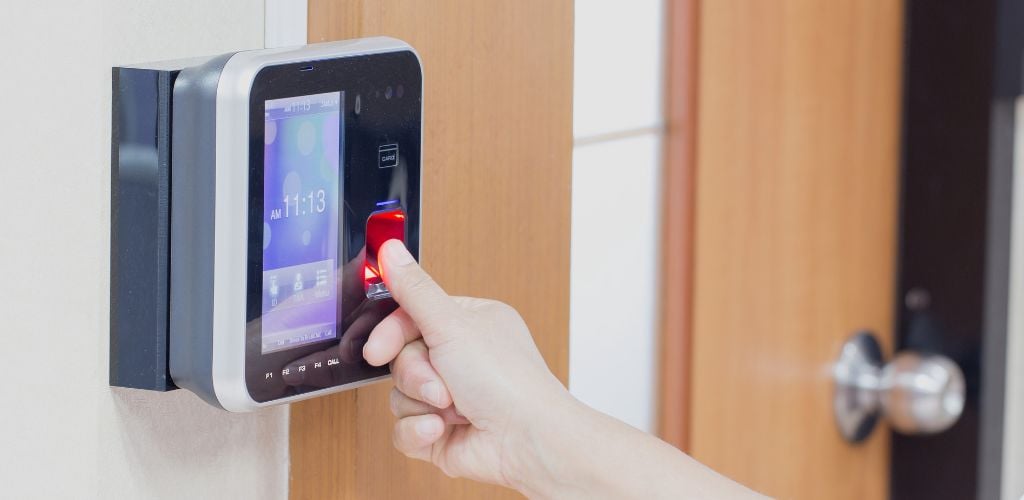In the last few years, there’s been an explosion in the number of coworking spaces worldwide. With a rise in the number of people now working remotely, many are now able to ditch “traditional” office workplaces and take advantage of the numerous benefits of coworking spaces.
While there’s no doubt that the freedom that comes with this kind of lifestyle is a total game-changer, one of the main challenges faced by digital nomads is finding a place that’s suitable for getting work done while traveling.
For many people, coworking spaces offer the solution. I’ve been making the most of the digital nomad lifestyle for the last 2 years now and have worked in various coworking spaces around the world.
So, in this post, I’ll be discussing the main benefits of coworking, as well as a few coworking disadvantages.
15 Pros and Cons of Coworking Spaces

To compile this list of coworking spaces’ benefits and disadvantages, I’ve combined my own personal experiences of coworking with those of other people I know.
Not all of these pros and cons of coworking spaces will apply to everyone. Ultimately, everyone’s different, and every remote worker will have their own unique set of requirements and preferences.
That said, I’ve made this list as broadly applicable as possible in order to help as many of you considering the coworking hype for yourself.
What is Coworking?

Coworking essentially means sharing an office-like space with people that you don’t work with. It’s a relatively new style of work and is especially popular among freelancers, entrepreneurs, and digital nomads.
While the majority of coworking users tend to work for themselves, a growing number of companies are allowing their employees to work remotely, at least part of the time. Many of these people choose to work in coworking spaces, rather than at home.
Coworking spaces provide office-style amenities (fast internet, meeting rooms, printers, kitchen facilities, etc.) to people who otherwise might not have access to them. Many spaces also put on social events and other activities to help foster a sense of community among their members.
See also: 15 Best Coworking Spaces in the World
Pros of Coworking Spaces

Every coworking space is different, and some have their own unique advantages. However, these are the main pros of coworking spaces in general:
1. Opportunities for Networking (One of the Biggest Benefits of Coworking Spaces)

For me, the most significant advantage of coworking spaces is that they can be great places to network with other people. I don’t like to work from coworking spaces all of the time, but whenever I do, I always try to take advantage of the opportunities to network as much as possible. You never know who you may be busying away beside!
Unlike in a traditional office, where you’re usually surrounded by your colleagues only, in a coworking space, you get to mingle with people who work in a wide range of various fields. This provides excellent opportunities for networking and cross-pollination of ideas.
For example, if you’re a blogger, you may just meet the perfect web designer sitting at an opposite table. If you’re a publisher, you might meet your next superstar writer over by the coffee machine. Or if you’re a photographer, perhaps you’ll meet someone to collaborate with for your next project.
It’s far more social than working from home all of the time. I’ve made several friends with people I’ve met in coworking spaces and I’m still in touch with them today. I probably wouldn’t have ever met these people if it hadn’t been for us both choosing the same coworking space.
2. Access to Office Supplies and Facilities

Coworking spaces offer a range of office supplies and facilities that you may not have at home (or wherever you’re staying at the time), including high-tech printers, scanners, whiteboards, and conferencing facilities.
Having access to office supplies and facilities is a huge advantage for digital nomads. It can be especially useful if you travel around quite a lot. I mean, who wants to carry around a massive printer with them?
Good coworking places also tend to have a range of comfortable workspaces, and many even have ergonomic office chairs for their users. This makes them much more comfortable for putting in a long day’s work than at the kitchen table of your Airbnb or hotel room.
Plus, having a fast and reliable internet connection is essential for the majority of remote workers. Speaking from personal experience, coworking spaces tend to have some of the fastest speeds in town, especially in developing countries where your apartment’s WiFi might not be the strongest, to say the least.
3. Flexibility

Many people are drawn to coworking spaces because of their flexibility. Unlike a traditional office, you generally don’t need to commit to long-term leases, and most coworking spaces stress that flexibility is a key feature and benefit of their memberships.
Most coworking spaces allow you to rent a desk (or a small office space) for as little or as long as you need it. Many places offer day passes, as well as a range of other part-term membership options, so you can find a package that suits you perfectly.
For example, as well as regular day passes and monthly memberships, lots of coworking spaces allow you to buy “packages” or “bundles” of hours. These allow you to access the space a certain number of hours per month, without needing to commit in advance to precise times and dates that you’ll be there.
This is particularly useful for small businesses and start-up entrepreneurs, allowing them to scale up or down their office space as and when they need to. It’s also great for people who (like me) enjoy the freedom of working for themself and don’t want to be tied to any long-term workplace commitments.
4. Inspiring Atmosphere

In my personal experience, I’ve found that being surrounded by other motivated individuals can inspire and push you to excel in your own work. Coworking spaces tend to be full of people who work for themselves and are therefore highly motivated.
If you spend too much time working from home, it can be easy to procrastinate, or to feel your motivation levels drop, given the lack of a professional “work” environment.
Coworking spaces are all about providing this environment, as well as the facilities you might need, to help keep you feeling inspired and motivated to work hard on whatever it is that you do.
This naturally helps create a positive feedback loop. The more inspired people you see around you, the more likely you are to be inspired – which then continues with the effect of your inspiration on other people. It’s a win-win.
5. Cheaper Than Renting a Traditional Office

This one’s fairly straightforward – and overlaps with the section on flexibility (above). Traditional office spaces tend to be fairly expensive and also usually require you to commit to a relatively long-term lease.
By comparison, coworking spaces are much more affordable in general.
The exact prices vary depending on where in the world you are. But regardless of your location, it’s almost always going to be cheaper to use a coworking space than renting a traditional office.
6. Separation of Working and Living Spaces

As many people found out during the COVID-19 pandemic, living and working in the same space 24/7 can make you go a little crazy. In my old job, “working from home” just meant “living at work”. And that sucks.
Having a workplace that’s physically separate from the place where you live, relax, and sleep can help provide a degree of necessary separation between work and non-work time. It helps you switch off at the end of the day by physically leaving your work outside of your living space.
For many people, this can have significantly positive impacts on mental health and well-being. It certainly does for me.
7. Events and Workshops

Working for yourself, by yourself, can be pretty lonely at times. Many coworking spaces put on social events, like live music, pizza and movie nights, pub crawls, cooking classes, and more.
Some even put on educational events, presentations, seminars, and workshops on a range of different topics, from entrepreneurship to rock climbing, and SEO to organic farming.
For example, when I was working at Outpost Weligama in Sri Lanka, a local organization called Sea Sisters held a workshop on the amazing (and crucial) work they do to help teach Sri Lankan women and girls to swim (and surf). They also taught us a few handy Sinhala words and phrases.
8. Location and Accessibility

Coworking spaces tend to be located in the hearts of cities, close to all of the action. Chances are, there’ll be a range of great eating, drinking, shopping, and other entertainment options right on the doorstep.
This is also a big plus if you need somewhere to meet clients, as coworking spots are usually relatively easy to get to.
Many coworking spaces are also part of global networks (such as WeWork) which allow their members to access various locations around the world. This is ideal if you’re looking for a long-term coworking solution, but intend to move around throughout the year.
9. Resource Sharing

Using a coworking space allows you to take advantage of economies of scale. Most give you access to top-spec facilities and resources that you might not otherwise be able (or willing) to pay for yourself.
For example, you may not need access to expensive conferencing facilities on a daily basis. However, sharing these facilities with others can make it much more practical and affordable for you to use these conveniences on an occasional basis.
There’s also a wealth of collective knowledge to be shared, especially if you take advantage of the opportunities for networking that are always swimming around these collaborative places.
10. Additional Benefits and Amenities

Finally, coworking spaces aren’t only about working. Most coworking memberships include access to various additional benefits and facilities. These extra benefits can help provide an overall better working experience, and can also sometimes help you justify the cost of the membership.
Many coworking spaces offer free tea, coffee, soft drinks, and snacks. Most have some kind of hangout/chill space with couches, TVs, and other amenities, and some even have swimming pools, gyms, libraries, and yoga studios on site.
Some coworking memberships also include other benefits, such as special deals at certain local businesses, discounted gym memberships, and more.
Cons of Coworking Spaces

As with most things, despite the numerous benefits, there are also a few downsides to coworking spaces. Some of these will be more or less of a problem to different people in turn.
Keep in mind that some issues are likely to be specific to individual places too; some coworking spaces are simply just better than others. Here are some general cons of coworking spaces:
1. Costs

Memberships can be expensive in some places (especially in North America and Europe). Coworking spaces in Asia and Latin America tend to be more affordable. However, you’ll still need to factor the added expense into your overall budget.
You may well decide that the added cost is worth it. But it is still an added cost, sometimes a significant one, and that does put many people off using them a lot (myself included).
One way around this issue is to take advantage of flexible membership/access options, such as day passes. A number of coworking spaces also allow you to purchase “packages” of hours (e.g. 25 or 50 hours per month). These can often save you money, especially if you’re unlikely to require access every day.
I’m not a tax expert (and this is not tax advice), but in many countries, it’s possible for freelancers and business owners to write off the costs of coworking spaces against their tax bill. Depending on your individual tax circumstances, this can help make these costs easier to swallow.
2. Distractions

Busy open-plan workspaces can be distracting. Some people thrive in bustling environments, but for others, it can interfere with concentration and focus.
Personally, I like there to be silence when I’m working. I find it very difficult to do any kind of creative work, writing, or thinking when I can hear other people talking in the background. For example, I can’t work in cafes, as much as I’d like to be able to. They’re a no-go for me.
However, some people are the opposite. I know several people who hate silent environments and do their best work in places that are buzzing and noisy. They find the activity of the place energizing, rather than distracting.
Ultimately, it depends on you and your preferences – there’s no “right” answer to this one. You just need to figure out what works best for you, (which is one of the things I love most about working for myself – you can do things however you like!).
3. Lack of Privacy

The lack of privacy in coworking spaces can be an issue for some people. For example, if your work is confidential or otherwise highly sensitive, coworking spaces might not be suitable environments for you to work in.
I used to be a lawyer in a former life. It just wouldn’t have been appropriate for me to give sensitive, confidential legal advice to my clients while sitting in an open-plan coworking space. Of course, this isn’t going to be an issue for everybody, but it is something to bear in mind.
It’s often possible to rent private rooms or call booths, although this normally costs more – sometimes a lot more (again, it depends on the place in question).
Ask yourself: “Would it matter if someone else read what was on my screen, or overheard what was being said on a call?”. If the answer is “Yes”, I’d recommend thinking twice before doing that kind of work from a coworking space.
4. Competition for Resources

In popular coworking spaces, you can sometimes find yourself competing with others for resources such as meeting rooms, printers, and other shared equipment, which may be in high demand.
A common complaint that I’ve heard in various coworking spaces is that there aren’t enough call booths for everyone to use when they need to. Or that somebody is always hogging the meeting room (a frustratingly perfect recipe for conflict).
Sometimes the printer runs out of ink (or breaks) because too many people are trying to use it. Sometimes the internet slows down because too many people are trying to have HD video calls or download large files. And sometimes there just aren’t enough power outlets.
Of course, these can all be problems in “regular” office workplaces too. But they’re all possibilites to bear in mind, especially if you have things (like confidential calls or meetings) that require you to be able to use the call booths or meeting rooms at specific times. You can’t always rely on being able to use them.
5. Lack of Customization

Finally, because of the nature of coworking places as shared spaces, you have limited control over things like the temperature, lighting, and seating arrangements.
This can be uncomfortable and distracting if the environment isn’t suitable for your needs. However, this might also be more of a problem for some people than others. Everybody has their own preferences and requirements.
In a “traditional” office, it’s often possible to customize your desk with photos and other items. You tend to have your own chair which you can set to make it as comfortable as possible for you. And you might be able to move things around to make your workspace as efficient and organized as you can.
However, in coworking spaces, that’s often not the case. You don’t typically have the luxury of having your own desk or chair, or even the ability to move things around if needed. In places with hotdesking, you essentially have no choice but to take whatever space/setup is available to you on the day, and accept it.
If you hire your own private office inside a coworking space, you can normally customize this a fair amount, but these offices usually cost considerably more than the classic open-plan coworking access and may be out of budget of many people.
FAQ’s About the Pros and Cons of Coworking Spaces
Here are some answers to frequently asked questions about the pros and cons of coworking spaces:
Coworking spaces offer startups a great way to save money, gain access to important networks and resources, and promote collaboration between team members. Coworking spaces also provide private spaces for meetings, giving startups the opportunity to have a professional backdrop without the overheads of renting a traditional office space.
Every coworking space is different. But in my experience, most coworking spaces share the core values of networking, collaboration, creativity, innovation, productivity, professional and personal development, and flexibility.
Many also prioritize informality, fun, aesthetics, and well-being. The need for good quality coffee tends to feature fairly highly too.
Coworking spaces are generally designed to provide a comfortable, productive, and collaborative environment for remote workers, freelancers, and entrepreneurs.
Coworking spaces can provide an important place for remote workers to network, collaborate, and access resources and facilities that wouldn’t otherwise be available to them.
They can also be great places for socializing with other like-minded people and help prevent feelings of loneliness and isolation that can be common among remote workers and solopreneurs.
There are many benefits of working out of a coworking space. For me, some of the most important benefits are the opportunities for networking, the office-style facilities and amenities, and the separation of work and living spaces.
Coworking offices have become increasingly popular in recent years. My prediction is that, as more and more people are able to work remotely, coworking spaces will continue to grow in popularity. More and more will open, and I think they’ll offer an increasing range of amenities and benefits as a way of competing for business.
Is Coworking Worth It?
I hope that this article on the advantages and disadvantages of coworking spaces has been helpful and informative.
Are coworking spaces worth it? The answer to that question depends largely on your preferred working style, the sort of work that you do, and (to an extent) where in the world you are.
For many people, the answer is: yes, coworking spaces are definitely worth it. As you’ve seen from this post, there are many benefits of shared office spaces. However, my advice would be to simply try out a few different coworking spaces out for yourself to see whether or not they’re for you.
The post 15 Pros and Cons of Coworking Spaces (Are They Worth It?) appeared first on Goats On The Road.




Recent Comments